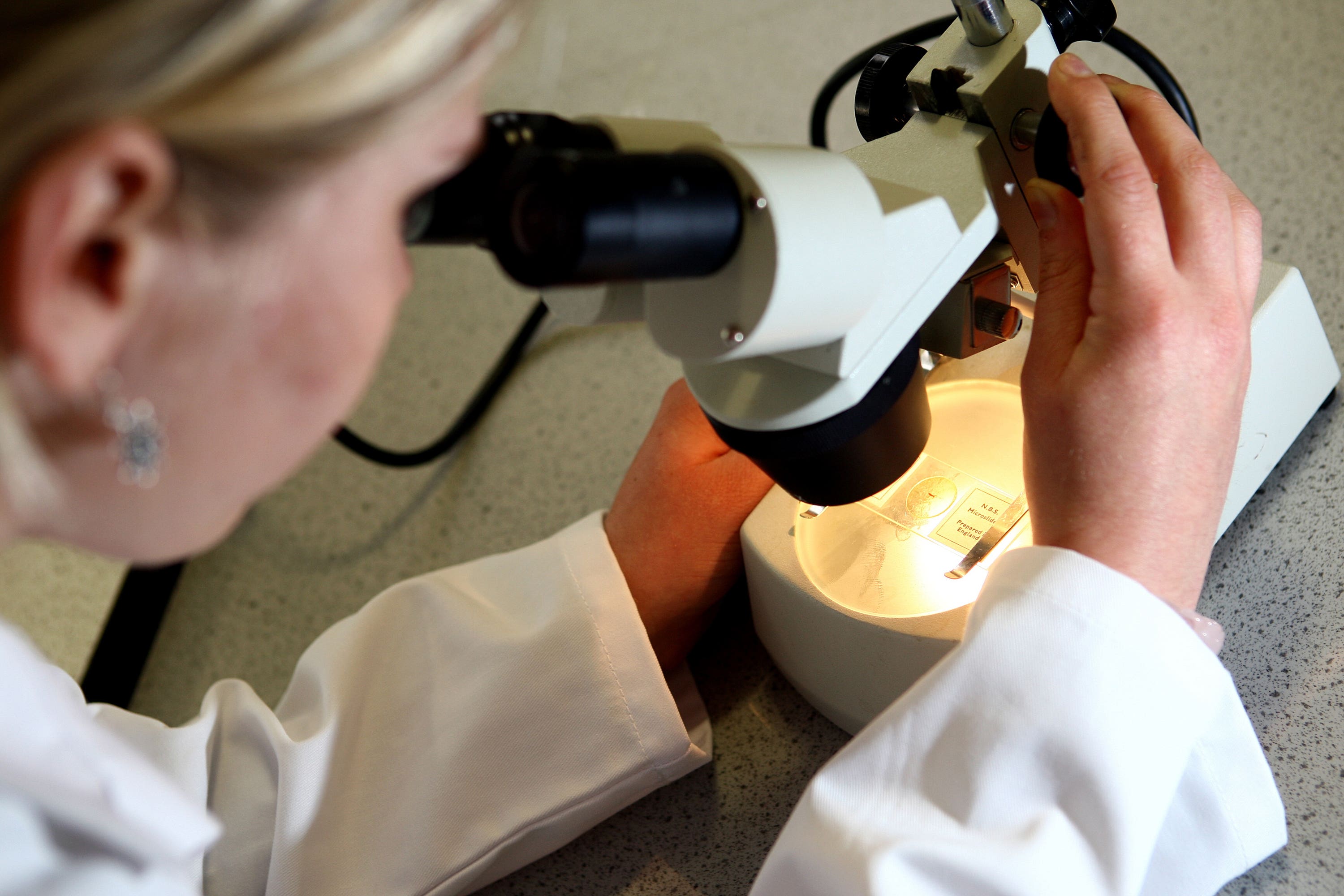Drug breakthrough gives hope of new treatment for ‘largely incurable’ blood cancer
Existing drugs could be repurposed to treat rare leukaemia following the discovery, according to researchers

Your support helps us to tell the story
This election is still a dead heat, according to most polls. In a fight with such wafer-thin margins, we need reporters on the ground talking to the people Trump and Harris are courting. Your support allows us to keep sending journalists to the story.
The Independent is trusted by 27 million Americans from across the entire political spectrum every month. Unlike many other quality news outlets, we choose not to lock you out of our reporting and analysis with paywalls. But quality journalism must still be paid for.
Help us keep bring these critical stories to light. Your support makes all the difference.
A drug breakthrough could usher in a “new era” for how an aggressive form of blood cancer is treated, scientists have said.
Described by researchers as a “largely incurable disease”, acute myeloid leukaemia (AML) is a cancer which causes the bone marrow to produce a large number of abnormal blood cells. According to the NHS, there are about 3,100 people diagnosed with the disease each year in the UK.
A study has discovered that blocking an enzyme in the body’s cells which senses changes in oxygen levels could stop the disease from progressing.
We’re hopeful this research will pave the way towards a new era of AML treatments, and we’d like to explore whether these therapies could also be beneficial for solid tumours
In the presence of oxygen, these enzymes – known as hypoxia-inducible factor prolyl hydroxylases (PHDs) – become active, to target and destroy proteins called hypoxia-inducible factors (HIF).
When oxygen levels are low, PHD enzymes are less active, leading to higher HIF levels.
The study, co-led by the Institute of Cancer Research, London, and the University of Oxford, explored whether boosting HIF levels could prevent the progression of AML.
They genetically modified mice and de-activated PHD enzymes, which increased HIF levels and stopped disease progression without impacting the production of normal blood cells.
A similar enzyme-blocking process is used in drugs that treat anaemia, say researchers, and showed the same effect on leukaemia in both mouse cells and patient samples.
The research team has also created a new compound called IOX5, which inhibits PHDs without impacting other enzymes.
Kamil Kranc, a professor of haemato-oncology at The Institute of Cancer Research, London, said: “Therapy for acute myeloid leukaemia has barely changed in several decades.
“There is a huge need to discover better treatments for this aggressive disease.
“We’ve shown for the first time that targeting the pathways that our cells use to respond to oxygen levels could provide a new way to treat leukaemia, without impacting the normal production of blood cells within the bone marrow.”
AML is most common in patients over the age of 75.
This work provides important insights into that ecosystem, and the way in which cancer uses signals within the environment – such as those relating to oxygen levels – to grow and develop
It is hoped the findings of the research – which was funded by Cancer Research UK, the Medical Research Council and Barts Charity, and published in Nature Cancer – will now be tested in clinical trials.
Prof Kranc added: “Our next challenge is to progress the existing drugs and our new, more selective compound, to clinical trials.
“We’re hopeful this research will pave the way towards a new era of AML treatments, and we’d like to explore whether these therapies could also be beneficial for solid tumours.”
Professor Kristian Helin, chief executive of The Institute of Cancer Research, London, said: “Cancer exists in a complex ecosystem within the body.
“This work provides important insights into that ecosystem, and the way in which cancer uses signals within the environment – such as those relating to oxygen levels – to grow and develop.
“This study is also an excellent example of cancer researchers and chemists working closely together to develop and test new cancer therapeutics.”
Subscribe to Independent Premium to bookmark this article
Want to bookmark your favourite articles and stories to read or reference later? Start your Independent Premium subscription today.